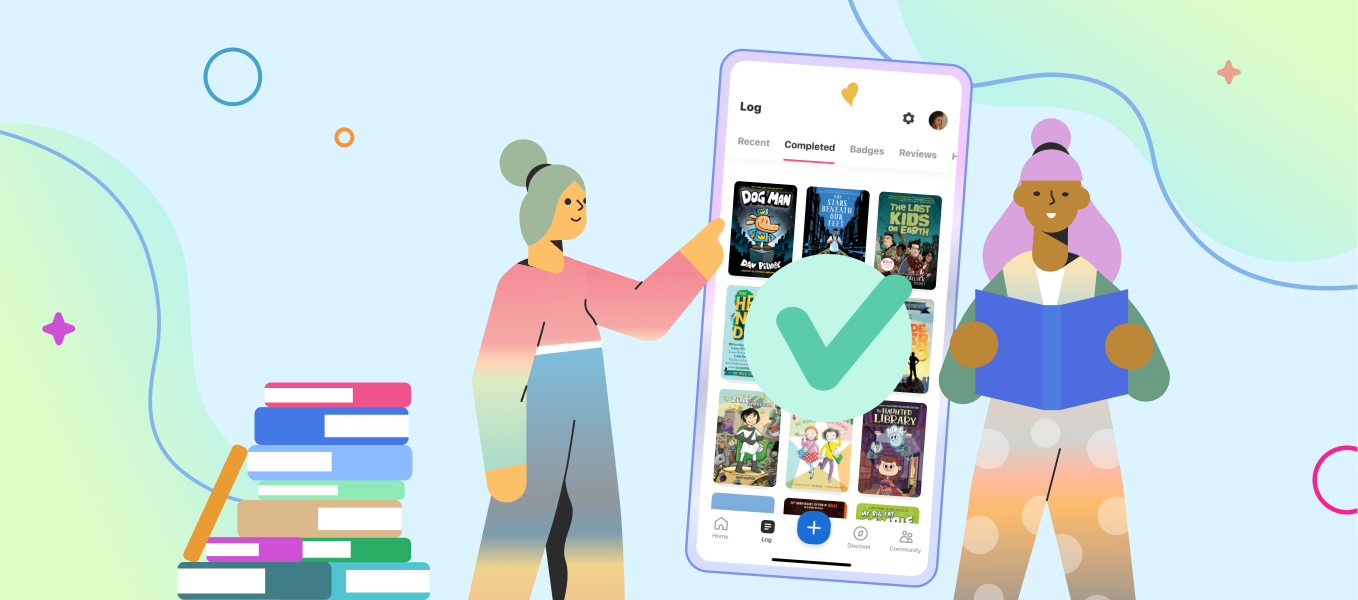When we designed Beanstack, we put the joy of reading front and center. Our user-friendly and enjoyable program is specifically designed to nurture a love for reading and maintain the integrity of the reading experience – all without the burden of tedious quizzes. Our research-based approach is designed to deliver an optimal learning environment for both educators and students with reading challenges that encourage free choice reading. We aim to inspire student motivation for independent reading while ensuring accurate and quality data for teachers and administrators. Read on to discover how our reading program measures students' progress and improves reading skills, the innovative features we’ve developed that prevent fraudulent logging, and the six strategies to ensure reading accountability.
Curiosity First: The Benefits of a Quiz-Free Reading Program
At Beanstack, we always do our homework (ahem, our reading). Developing a quiz-free approach with multiple benefits for educators and students was no different: Beanstack encourages reading whatever students choose. Research shows that student choice is essential to unlocking the benefits of independent reading. When we limit students to books that include quiz questions, we present a barrier to student choice—something that we know shuts down the positive feedback loop of curiosity and discovery necessary to keep reading motivation high. Worse, presenting a quiz at the end of free-choice reading can put a serious damper on the joy of reading and can feel intimidating or even punitive to students—especially the struggling and reluctant readers who need the most encouragement.
What does this approach look like in action?
- Beanstack encourages daily reading habits, starting with increments as little as one minute.
- With tracked daily reading, instead of learning about a student’s’ reading progress only when they finish a book, Beanstack allows teachers to see how students are progressing, enabling them to check in with students while they are actually reading. Beanstack's progress tracker or digital log is integral to getting the most accurate reading data and insights.
- Beanstack puts value on all reading. Everything students read counts, from physical book titles to graphic novels to the side of cereal boxes! Small steps add up to more extensive, long-term habits and lower barriers to entry for reluctant readers.
How Beanstack Guards Against Fraudulent Logging
The truth is that no paper or digital solution is 100% cheat-proof. Students can cheat on quizzes from Accelerated Reader (AR) and other platforms by Googling or guessing. With a traditional reading log or a paper reading log, students can be untruthful with their total reading time, even with a parent signature. The digital version of a reading log is the best way to go to prevent fraudulent logging.
But there’s also good news: Remember when we said we always do our homework? Beanstack’s approach harnesses the proven power of reading as a social practice that creates transparency and leads to self-policing and honest logging. Our pro-social gamification features include connecting with friends, shared community reading goals, and leaderboards. Logging limits and warnings ensure students cannot log more than a certain number of minutes determined by the school. A self-reporting setting requires students to promise that their reading is honest when they log above a warning threshold set by the school. Activity and review badges prompt students to engage deeply with their reading material in positive and self-driven ways.
Rich reading log reporting allows administrators and teachers to identify (and edit or bulk delete) flagged reading logs at the individual student, class, or school level, and reading validation challenges are available for some books and state book awards lists that provide simple fill-in-the-blank validation when logging a complete book.
The Impact of Fraudulent Reading Logs
Here’s some more good news: Fraudulent logging is limited. Our audits have found that:
- Just 0.8% of all student readers across the platform created a flagged log.
- At most schools, just one or two students engage in fraudulent logging.
- Fraudulent logging occurred at 33% of Beanstack school sites.
- Where it did occur, over half had fewer than 3 students fraudulently logged during the whole school year, with most occurring on a single day.
Combine this data, demonstrating relatively low real-world instances of fraudulent logging, with another important consideration: We’ve found that the more educators police student reading, the less motivated students will be. Beanstack’s reading validation challenges—which offer limited quizzing—do not gain significant student engagement. These reading challenges average just 11.19% active student participation compared to traditional reading challenges.

6 Best Practices to Ensure Reader Integrity
So, what is the most effective way to address the issue of fraudulent reading logging when it becomes apparent? Check out the following strategies our clients employ to tackle this challenge.
1. Engage in candid and open dialogues with the students doing it. An honest and open conversation turns most students around. Many of our partners, like Atlanta Public Schools, use our fraudulent reader report as a conversation starter with students.
2. Tap into Beanstack's social features—such as the ability to connect with friends, compete on leaderboards, and work towards community goals—to create a transparent reading experience for the whole community, encouraging students to take accountability for their own progress.
3. Connect regularly with students about their Beanstack logs, and recognize students who are logging honestly.
4. Use digital reading logs to promote digital citizenship development, where students can practice using technology safely and responsibly.
5. Take advantage of cheating incidents as a chance to engage students in reading. When students go as far as falsifying their reading logs, it demonstrates a genuine interest and concern for their reading progress.
6. Train and encourage teachers to monitor and draw insights from their students’ reading logs, which allows them to catch—and intervene in—fraudulent logging if and when it starts.
Take the Next Step on Your Beanstack Journey
Beanstack's approach to reading is rooted in extensive research, emphasizing the importance of positive reinforcement, fostering a pro-social reading environment, cultivating curiosity and joy, instilling a love of reading, and removing barriers to entry.
Are you ready to embrace reading integrity with Beanstack? Contact our team to discover how Beanstack can empower your independent reading initiatives in the classroom for ferocious readers and unmotivated readers alike.

